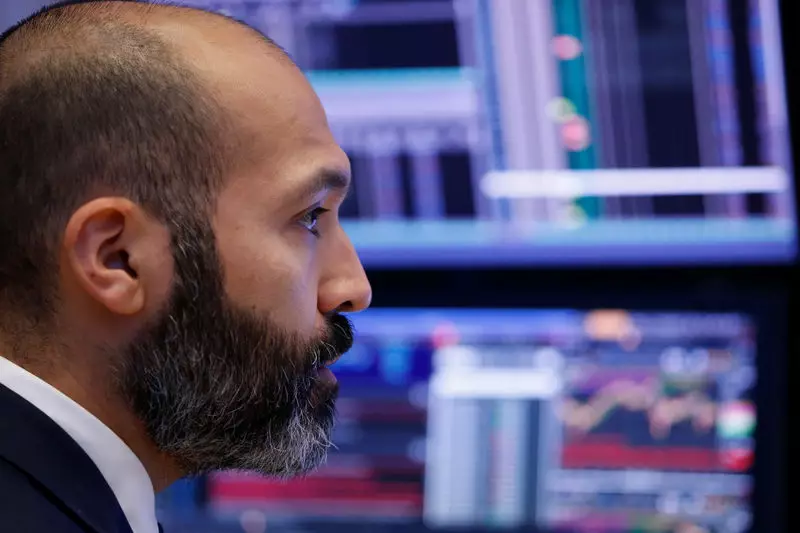The world of cryptocurrency faced one of its most significant crises in late 2022, as the FTX exchange, once heralded as a beacon of innovation and safety, crumbled under allegations of massive financial malpractice. At the center of this tempest was Caroline Ellison, the former CEO of Alameda Research, a hedge fund closely associated with FTX and once overseen by its founder, Sam Bankman-Fried. On the brink of Ellison’s sentencing for her participation in the operation that siphoned off approximately $8 billion in customer funds, the ramifications of this fraud continue to ripple through the financial landscape.
Ellison’s plea of guilty to seven felony counts of fraud and conspiracy highlights not only her pivotal role in the scandal but also the broader issues of governance and ethics within the cryptocurrency sector. Set to learn her punishment during a hearing in Manhattan, her impending sentence will likely reflect both the gravity of her actions and the extent of her cooperation with federal prosecutors. Ellison’s attorneys are advocating for no prison time, citing her remorse and willingness to assist in constructing a case against Bankman-Fried, whose own conviction led to a 25-year prison sentence.
Ellison’s cooperation was described as “extraordinary,” with prosecutors noting that she engaged in over twenty meetings to illuminate the operations and systematic failings of FTX. This participation raises questions: Can cooperation ever truly absolve a corporate executive of their actions, particularly in a scandal of this enormity? What precedent does it set for future cases involving executive misconduct?
The Ethical Dimensions and Public Perception
As prosecutors drew contrasts between Ellison’s admission of responsibility and Bankman-Fried’s denials, the public struggle over morality in business became starkly apparent. The disparity between the two former executives—a powerful reminder of how accountability manifests—has fueled discussions on the ethical responsibilities of corporate leaders. While Ellison expressed guilt and relief following the exposure of their wrongdoing, Bankman-Fried’s narrative remained one of deflection, emphasizing the complex nuances of personal accountability in the high-stakes world of finance.
The jealousy directed toward Ellison by some factions of the public underscores the societal desire to hold someone accountable, particularly a woman in a predominantly male-dominated industry. Its ramifications extend beyond a singular case; they reflect an increasing demand for transparency, honesty, and ethical standards in all business dealings, particularly within volatile sectors like cryptocurrency.
The Fallout for Cryptocurrency and Regulatory Landscape
The fallout from the FTX scandal signifies a pivotal moment for the cryptocurrency industry. With Bankman-Fried categorized as one of the largest perpetrators of financial fraud in U.S. history, regulators are now facing mounting pressure to impose stricter oversight mechanisms. The traditional financial sector’s skepticism of cryptocurrency has intensified, and public trust has been significantly compromised. The debates surrounding regulation have gained momentum, as the need to close loopholes and provide greater scrutiny becomes evident in safeguarding against similar catastrophes in the future.
The reactions to the FTX collapse illustrate how the cryptocurrency marketplace—a realm often touted for its private nature—requires more robust regulatory frameworks. As Congress and state authorities consider legislative changes, the challenge remains: How does one balance fostering innovation while ensuring consumer protection in an ever-evolving digital economy?
As sentencing day approaches for Ellison, and with other FTX executives awaiting their consequences, the future of cryptocurrency appears precarious yet ripe for reform. The case underscores that accountability and collaboration within the financial ecosystem are paramount in restoring public trust. Future executives might reflect upon Ellison’s experience, drawing valuable lessons from the extreme consequences of unbridled ambition and unethical practices.
Finally, the FTX affair emphasizes the necessity of comprehensive education around digital currencies, both for investors and executives. By cultivating a thorough understanding of cryptocurrency’s potential pitfalls and ethical responsibilities, stakeholders can work towards a more transparent, trustworthy, and secure financial future. Only through rededicating to ethical practices and accountability can the space recover from this scandal and genuinely transform into a legitimate financial alternative.

